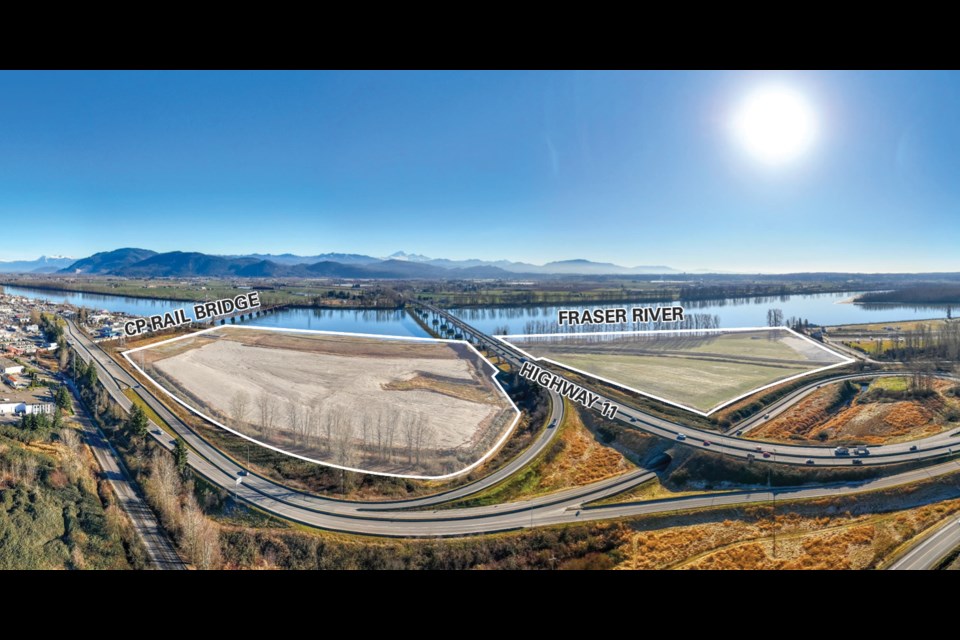Vancouver’s industrial tenants and owner-occupiers may have a brief window to snag better facilities in the region before vacancy rates see an expected decline later this year.
A “flight to quality” can be observed in Greater Vancouver’s industrial property market, with industrial groups upgrading to newer, more efficient buildings in more optimal locations, said Ryan Kerr, Vancouver-based industrial specialist with Avison Young (Canada) Inc.
“As things soften, tenants and owner-occupiers can negotiate better terms on better facilities, and they’ll use the leverage of the less attractive buildings and the greater amount of supply” to secure better deals, Kerr said.
But don’t expect this window of opportunity to last long. The bottom of the market is now firmly in the rear-view mirror, he said.
At the end of 2023 and throughout 2024, vacancy increased from a previous low of about 0.35 per cent up to 3.9 per cent, Kerr said. But vacancy rates could head back down in late 2025 and rents could start climbing again toward last year’s peaks, resulting in tighter market conditions.
“There’s currently approximately 2.5 to three million square feet of large leases in play at the moment,” Kerr said. “If all those deals come to fruition, I think you’re seeing a declining vacancy environment throughout this year and you’re going to see rents start going back up from a more stable place today.”
The Vancouver region has a shortage of industrial land due to constraints like the U.S. border, ocean, mountains and surrounding agricultural land reserve, he said.
“Existing zoned industrial land being quite scarce, we only have so many years of land supply left if we keep absorbing industrial space” at historical lease or absorption rates of about 3.5 to four million square feet per year, he said.
One market with industrial capacity is the Fraser Valley, which is already home to a 798-hectare industrial park known as Campbell Heights. The local area plan for a new 249-hectare expansion, known as South Campbell Heights, was approved by Surrey city council in December.
“The Fraser Valley has a very good labour pool to operate [industrial] facilities, as well as lower occupancy costs as rents peaked in more core markets,” Kerr said. “There is a cost-benefit to being further out in the valley, and also there’s a labour pool to operate a manufacturing facility or distribution centre.”
One of the last remaining large-scale industrial sites in the Fraser Valley is being listed this week.
In Mission, B.C., an 87-acre waterfront property, including some water, is expected to fetch more than $100 million for second-generation owners Kenny and Bobby Braich. It is already zoned for industrial use, though it could potentially be purchased by a major developer for future redevelopment.
“Redevelopment is a very long-term process, and I wouldn’t be surprised if an owner-user or somebody in the industrial business picks this up,” said listing agent Mark Goodman of Goodman Commercial Inc.
Goodman said it’s rare to see a listing for a kilometre of shoreline in the Fraser Valley, and that the listing could attract interest from overseas investors, the tech sector, warehouse operators and others.
“The waterfront revitalization master plan calls for kind of like a Lonsdale Quay or Granville Island feel, where there’s a little bit of everything,” he said. “It’s a major initiative that Mission wants to put forth, and this site is required to realize that vision.”
Meanwhile, on Wednesday, Vancouver developer Wesbild Holdings Ltd. announced the sale of a 27.5-acre waterfront industrial site in North Vancouver to an unnamed Canadian institutional investor, identified as Dream Summit Industrial LP of Toronto.
The 1371 McKeen Ave. location is one of the last remaining privately held waterfront “sites of magnitude” in the area, said a press release. After unsuccessfully trying to develop the site for job space, Wesbild will now be leasing back a portion of the site and will remain as landlord for two existing businesses there.
“After several development applications with the District of North Vancouver that did not proceed, we had to pivot and focus on renovating the existing warehouses that provide much needed industrial and storage space,” said Kevin Layden, president and CEO of Wesbild.
"Across Metro Vancouver, we need more industrial space. But we need a reset in thinking about industrial land development in Metro Vancouver if we are to compete on the world stage.”

.png;w=120;h=80;mode=crop)


